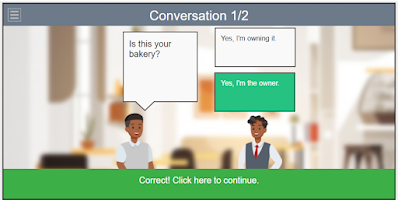When you learn English at a basic level, your goal is simply to understand what people say and engage in simple, everyday conversations.As you move up to intermediate level, you gain the ability to carry out a range of functions in English. For example, you should be able to write a work email or give people instructions.
However, the jump from intermediate to advanced level is a little different. You need to learn the nuances of English. You need to express yourself naturally, like a native speaker. In short, you need to be more expressive.
One way to be more expressive in English is to learn and use idioms. An idiom is any word or expression with a special meaning, such as 'a piece of cake' (easy) or 'raining cats and dogs' (heavy rain).
Another way is to learn strong (emphatic) adjectives. A word like 'good' is a normal adjective. Words like fantastic, wonderful, terrific and excellent are strong adjectives. A word like 'scared' is a normal adjective. Stronger versions are terrified, horrified or petrified.
Just like we have strong adjectives, we have strong verbs and specific action verbs. For example, 'walk' is a general verb, but if we want to be more specific about how a person is walking, we can use words like stroll, amble, swagger, march or wander.
These are three simple ways you can boost your vocabulary into advanced level!
To practice idioms, click here.
To practice emphatic adjectives, click here.
To practice specific action verbs, click here.



























